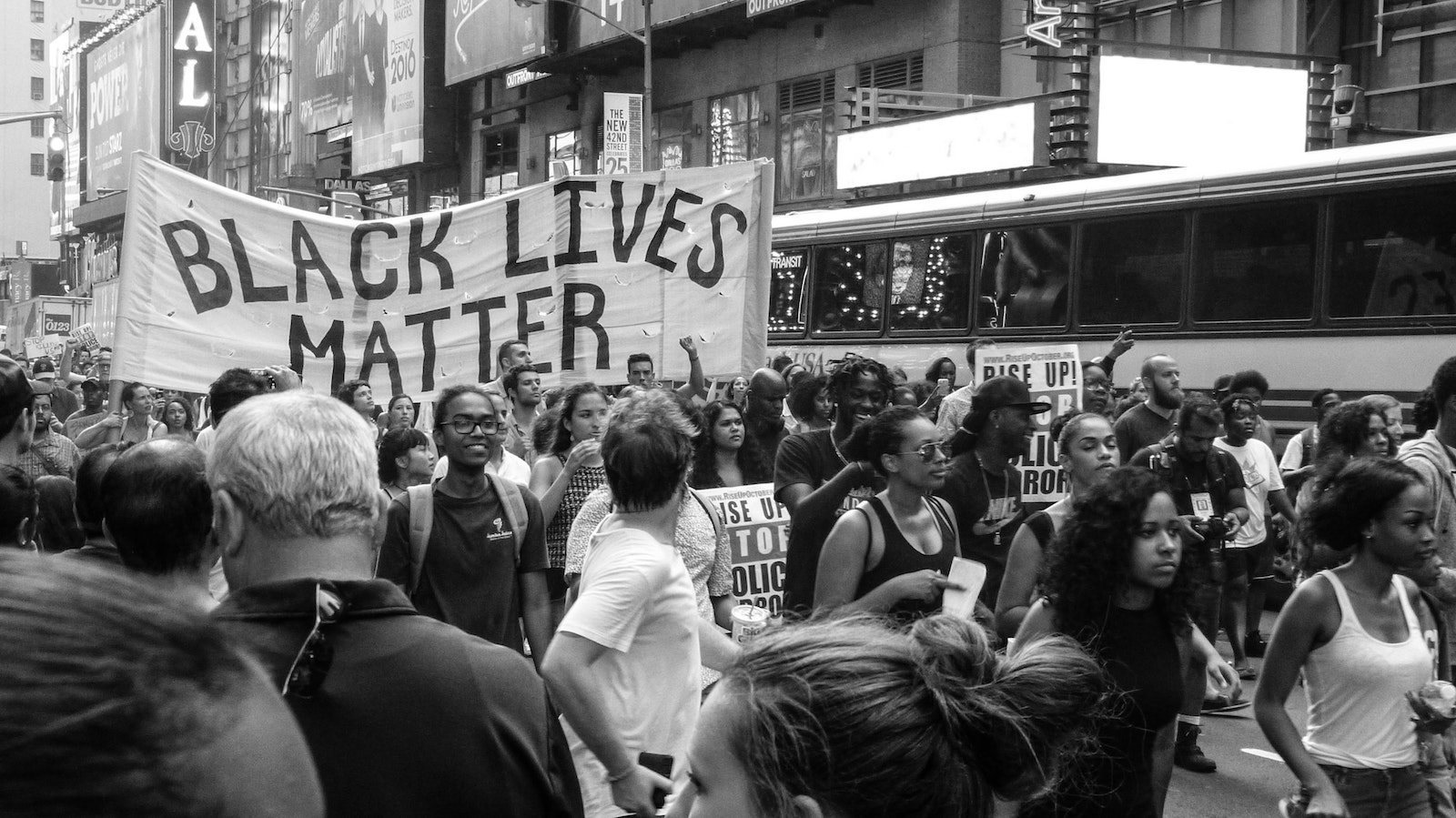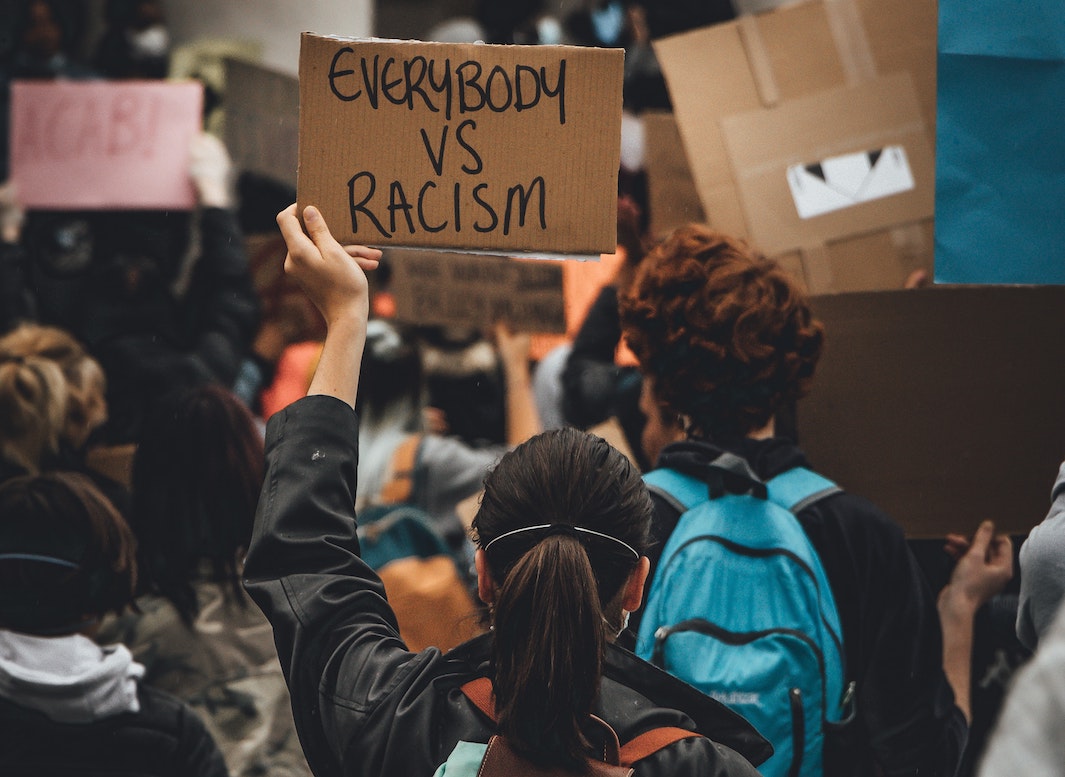
The recent killings of George Floyd, Breonna Taylor, and Ahmaud Arbery, among so many others who have been robbed of their lives over the years, year after year, by the brutal and fatal use of police force against members of the Black community, have sparked a renewed call for justice and for systemic change in the United States.
It’s about time.
We are not the first and we won’t be the last to condemn the actions of officers of the law who use their position of power to perpetuate a cycle of race-based oppression in this country. What happened is not okay. What has been happening to the Black community has never been okay. We are finally collectively talking about it.
But, at AdmitSee, we’re also talking about equality as it relates to access––specifically, access to education.
Along with wealth creation, education is one of the most often cited drivers of social mobility and life circumstance transformation. When people talk about policy reforms to expand equal access, education is inevitably brought up as one of the areas to re-examine.
We don’t deny this. Education is crucial in a person’s life, not only because it exposes one to new ideas, but also to new people and new values. It can fundamentally change a person’s worldview and alter a person’s set of available opportunities.
Yet, talking about educational access is not enough. Not without also talking about the way education in the United States was designed to uphold structural racism along with an interwoven set of social and political constructs that are still in play today. We can’t talk about access to education without also discussing access to healthcare, to affordable and equal housing, and to civic engagement and political and legal representation, just to name a few. None of these sectors operates independently of historical and persisting systemic racism.
It’s no secret that institutions of higher education in the United States excluded non-white students at their inception. The much sought after Ivy League colleges were initially designed to block certain candidates (i.e., racial and religious minorities) from gaining admission. The SAT college entrance exam has been redesigned multiple times to address and remedy its historical racial bias.
Our higher education institutions have come a long way to rectify these historical wrongs by embracing the need for diversity among their student bodies and to be more inclusive in their messaging and programming. Over the past couple of years, numerous colleges have moved toward test-optional admissions to increase access and reviewed their affirmative action practices.
However, as the Varsity Blues scandal last year demonstrated, those with money and influence know how to leverage their power and networks to call in favors and to game a system that already caters to their privilege. The consideration of legacy status, of big donor admissions, of reserved seats in the college admissions evaluation process all still feed the systems that grant preferential treatment or increased access to groups that are already advantaged. And because knowledge is also power, privileged access to application information and admissions channels can also represent power. There is a marked difference between the influence of an elite private school college counselor and that of a counselor working at an under-resourced public school in a low-income community.

At AdmitSee, our mission has always been to level the playing field for all students and to increase access to higher education with information access.
Yet, today, we acknowledge that the work we do increasing access to higher education is just one small piece of the solution needed for true systems-wide dismantling of structural racism. It’s not enough to increase access to college when we don’t also solve for success once admitted. Diversity at the admissions stage is laudable, but how do we ensure academic, social, health-related and financial success once these diverse admits make it on campus? Students who don’t stay, don’t graduate. Students who don’t graduate are faced with a vastly different set of opportunities than those who do.
And before students get to the application stage, how are we ensuring that all aspiring college attendants are set up for success when the time comes to apply? How do we make sure all our students are properly fed, are receiving adequate healthcare, have access to a safe place to sleep each night, have legislative representatives who speak on their behalf…? In order to maximize engagement in the classroom, we need to create social structures and systems outside of the classroom that support in-class engagement for each and every student, especially for our at-risk youth.
Higher education may be the most visible gatekeeper, but access through these gates is not enough. Those of us working to increase access must do so in conjunction with communities and organizations that are working on intersectional reform to also address equal access to public school funding, healthcare, and voting rights. Without doing so, we are simply addressing a downstream problem without redressing interwoven root causes.
As part of our commitment to this effort, we are donating 50% of all company proceeds from the month of June to NAACP Empowerment Programs, which engages in training, education, and advocacy for civil rights, and to the ACLU, which defends the civil liberties granted to all people in this country under the U.S. Constitution.
Let’s get to work.
Here is our non-exhaustive call to action, including ways to get informed:
There is currently a House Judiciary Committee Resolution (H.J.Res.54) to amend the Constitution of the United States to recognize the fundamental right to life, liberty, and property, which includes affordable housing, cost-effective health care, education, and nutrition. We see and support the intention behind this proposed amendment.
CIVIC ACTION
Under the current administration, many policies that protect civil liberties in our country have been rolled back. There are hundreds of bills introduced into the 2019-2020 Congress that deserve backing, including bills that protect or expand our rights to access, justice, and equal treatment.
Support the passage of Bill H.R. 40 for the creation of a comission to study the effects of slavery and discrimination from 1619 to the present and recommend appropriate remedies.
Support the passage of Bill S. 1059 (Fund for Innovation and Success in Higher Education Act) to establish and revise programs to increase access to higher education for high-need students, to increase their graduation rates, improve the efficiency of postsecondary education, and evaluate higher education programs.
Oppose the passage of H.R.899, which seeks to terminate the Department of Education on December 31, 2020, but support the reform of the DOE to approve funding for programs that expand educational access.
To learn how your local or state representatives vote on key issues, check out their voting history here at FiveThirtyEight. Congress.gov is also a great resource to learn about proposed bills and their progress in the House or Senate.
If you are eligible to vote in the United States, register to vote and show up at the polls. The U.S. presidential election may get the most press, but local elections can have the biggest day-to-day impact on your life. Many positions of power are elected or appointed positions, from police chiefs and sheriffs to local judges and district attorneys. These are key players who shape the criminal justice system in our country.
Support the cause by signing petitions to hold police accountable and divest police funding toward community-oriented solutions, such as education and healthcare. Also consider supporting other causes, such as safeguarding voter rights, decoupling educational funding from property taxes, or reforming the prison system.
BECOME AN ALLY
The “Educate” page of BlackLivesMatter includes a “Systemic Racism” explainer video, letters for your parents written in multiple languages, a misinformation Twitter thread, and an Anti-Racism resource list, just to name a few.
Justice in June is daily checklist of actions you can take to learn about structural racism and what you can do about it. Choose from committing 10 minutes, 25 minutes or 45 minutes a day. It includes short essays, podcasts, and documentaries to watch.
The 1619 Project looks at the longstanding impact of slavery and discrimination in the country that began with the first slave ship arriving at the shores of the Virginia colony in 1619 even before the founding of the United States.
DONATE WITH MONEY
If you can afford to, the following organizations are doing work at the national level to safeguard civil liberties. Find your local chapter to have more of a direct impact. This list is just a place for you to start:
Find links to donate to victims and their families as well as local and national organizations here: https://blacklivesmatters.carrd.co/#donate
DONATE WITHOUT MONEY
- Donate your voice by retweeting any of the following tweets: Donate by Sharing BLM Links
Donate your time by watching these Youtube playlists that are donating advertising revenue to BLM: (1) how to financially help BLM with NO MONEY or (2) BLACK LIVES MATTER - a way of donating to the movement
Donate your attention to individuals and groups that are vocal on BLM and actively dismantling systemic racism or creating dialogue about the Black experience in America. Some suggestions:
Instagram: @BlkLivesMatter, @BlackVisionsCollective, @NAACP, @CampaignZero, @ReclaimtheBlock, @BlackVoices, @TheConsciousKid, @BlackFuturesLab, @OfficialMillennialBlack, @Laylafsaad, @Rachel.Cargle, @TheDailyShow, @TrevorNoah, @KenyaBarris, @BlackAndEmbodied
WAYS UNIQUE TO YOU
You can change the unconscious narrative (and shift implicit bias) for those you come in contact with just by cues you place around you in your profession or in organizations that you are a part of. For example, if you’re an educator, stock your classroom with books that feature a variety of POC protagonists.
Reconsider the media you consume. Do they offer varied viewpoints of people of different backgrounds? Pick the medium that you like best and commit to trying a new podcast or TV show that features a POC lead and/or was created by a POC that you’ve never considered.
If you have a hobby or extracurricular activity you enjoy, consider joining a club or affinity group made up of members mostly from a different race than you’re used to engaging with.
Internally, at AdmitSee, we are committed to supporting Black students and students of color by making a conscious effort to increase diversity within our database, including featuring more first generation college students and students of color. We’re reaching out to work with organizations that are focusing on early education intervention and retention methods for at-risk/at-promise youth. As part of the effort to make higher education more accessible and affordable, AdmitSee has a $5,000 college scholarship (deadline June 30th) each year to help you cover educational expenses such as books, meal plans or other non-tuition fees. If you are a student who qualifies for application fee waivers or FRP meals, please contact us to gain free access to our site.
















 Back
Back